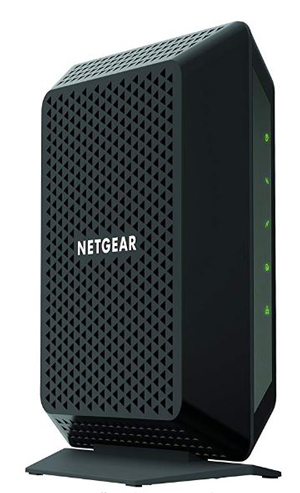July 18, 2019 - By Kevin Hecteman - Having trouble reading this on your laptop or smartphone? You might be among the more than one-quarter of rural Americans with insufficient broadband service.
 From equipment diagnostics to data transfers to irrigation control to simple text messaging, tech is becoming a way of life on the farm—but is only as good as the local internet connection.
From equipment diagnostics to data transfers to irrigation control to simple text messaging, tech is becoming a way of life on the farm—but is only as good as the local internet connection.
"America's farmers and ranchers embrace technology that allows their farming businesses to be more efficient, economical and environmentally responsible," the American Farm Bureau Federation states in a policy paper on the topic, citing precision applications of water, fertilizer and crop-protection materials among the benefits of tech on the farm.
"These are only a few examples of how farmers use broadband connectivity to achieve optimal yield, lower environmental impact and maximize profits," AFBF stated.
Or, as Siskiyou County farmer Brandon Fawaz put it: "Having faster internet now is no longer a luxury. It's kind of just required in the normal transaction or running of the business."
The trick, of course, is getting that service out to people who need it. Even California—home of Silicon Valley and its technical cornucopia—has issues with connectivity in rural regions, and Fawaz said it goes beyond broadband.
"We're still hindered by the lack of good cell coverage," said Fawaz, who grows hay and operates a fertilizer and crop-protection business. "I still rely a lot more on printing paper and taking that to someone driving a fertilizer spreader versus being able to send them certain types of data files straight from wherever I'm at to wherever they're at. You've got a piece of equipment sitting there, and you know what needs to be given to the guy, but you're having to take him a piece of paper or a USB stick for him to plug into the computer on the machine."
That extends to soil sensors Fawaz relies on to take moisture levels and send the data to phones and computers, accessing how-to videos and other troubleshooting information on equipment manufacturers' websites and irrigating crops from remote locations.
"Our pivots—our irrigation systems—are controlled on service that's basically just text-message-level service," he said. "I've had to drive a 36-mile round trip to go down and push a button, because the pivot wouldn't receive the stop or start command."
The issue, one of AFBF's top priorities, is receiving attention at the federal level. On Capitol Hill, a House subcommittee held a hearing last week at which Missouri Farm Bureau President Blake Hurst drove home the need for broadband access.
"While most Americans take broadband for granted, 26.4% of rural Americans lack access to broadband," Hurst told the hearing. "This is alarming, particularly when compared to the only 1.7% of urban Americans who lack such access."
Broadband connectivity allows equipment such as cloud-connected planters, irrigators, tractors and harvesters to automatically change application rates for seed, fertilizer and more, Hurst testified.
Connectivity also is key to running the most basic of services in rural areas, said Chester Robertson, chief administrative officer of Modoc County.
"It's a public-safety issue," Robertson said. "It's an impediment to government and education. And it also impacts our private-sector businesses."
Wildfires, car crashes into telephone poles and even squirrels gnawing on lines have all interrupted service and made it difficult, if not impossible, for residents and travelers to conduct business and for first responders to do their jobs, he added.
"The average citizen doesn't realize the implications to them when we don't have broadband," Robertson said. "And it's getting harder and harder for us in government to procure services when you're not connected to the cloud."
He's seen the effects on farmers and ranchers in his county as well, and noted capacity is getting to be an issue.
"As more and more of the ag community and a lot of the kids and other people go to using their cellphone, they're using the same broadband backbone that government and the rest of us are using," Robertson said.
"There's a nexus between cellphone usage, which more and more the ag community is dependent on, and having a strong backbone of broadband," he added. "As time progresses, this becomes less of an equality issue and more of an issue of public safety, and compromises ability for businesses and public entities to provide core mandated services."
A U.S. Department of Agriculture report, A Case for Rural Broadband, found that fully deployed rural broadband would lead to nearly $65 billion in economic benefits annually. The report, produced as part of the American Broadband Initiative, cites benefits to row crops, specialty crops and livestock management and states USDA's intention to work with other federal agencies to remove barriers to broadband deployment and ag tech innovation (See Comment).
The 2018 Farm Bill included the Precision Agriculture Connectivity Act, creating a task force to focus on connectivity and technology needs of precision agriculture. The Broadband Data Improvement Act, introduced by Sen. Shelley Capito, R-W.V., seeks to improve the accuracy of broadband coverage maps and better direct federal funds for broadband installation where needed.
In the state Legislature, Assembly Bill 488 by Cecilia Aguiar-Curry, D-Winters, would add the secretary of the California Department of Food and Agriculture to the California Broadband Council, to give agriculture a voice in finding ways to expand broadband. The bill is up for consideration on the state Senate floor.
"At this day and age, how do we not have better cell coverage?" Fawaz asked. "If you were to ask people here what's most frustrating on this topic, it hands down would be cell coverage."
(Kevin Hecteman is an assistant editor of Ag Alert. He may be contacted at khecteman@cfbf.com.)
Reprinted with permission: California Farm Bureau Federation








